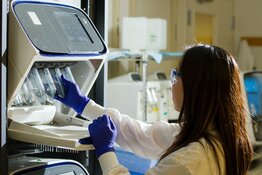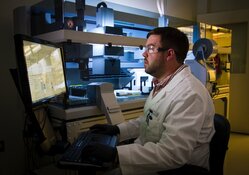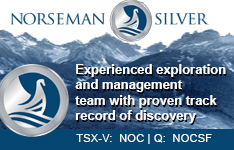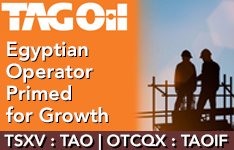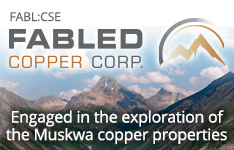Char Technologies Ltd. (YES:TSX.V) caught the attention of Paradigm Capital, which initiated on it with a Buy recommendation, reported analyst J. Marvin Wolff in a Nov. 28 research note. Using its own patented high-temperature, low-pressure anaerobic pyrolysis technology, the company converts biomass waste, including wood, into biocoal (CleanFyre), regenerative natural gas (RNG) and, for use in fertilizers, activated charcoal (sulfaCHAR).
"A combination of secured long-term sources of feed, best-of-breed technology and long-term offtake contracts, we believe, makes CHAR a successful near- and long-term enterprise," Wolff wrote. "We fully expect it to generate impressive cash flow and earnings over the next five years."
Compelling return potential
Paradigm assigned CHAR a target price of CA$1.10 per share, and in comparison, the industrial products company's current price is about CA$0.42 per share, Wolff wrote.
The difference between these figures implies significant potential gains for investors, of 162%.
At the forefront of HTP
In his report, Wolff presented the key points about the company.
CHAR is the only public company using high temperature pyrolysis (HTP) and the only company in North America able to produce biocoal at scale at attractive economics, Wolff highlighted.
He added that "the company can grow further as it is a global leader in its field."
Multiple facilities in progress
Toronto, Ontario-based CHAR boasts an impressive pipeline of projects, Wolff wrote. The industrial product company aims to deploy its technology at eight different sites in British Columbia, Alberta, Ontario and Quebec, together ultimately producing a projected 5,000,000 gigajoules per year (5,000,000 GJ/year) of RNG and 100,000 tons per annum (100 Ktpa) of biocoal, by 2028. Each plant will stand alone and have its own feedstock source(s) and offtake customers.
Currently, three plants are in various development stages and four are in the feasibility phase. The first plant, featuring a commercial-scale HTP kiln, is slated to come online in Thorold, Ontario. Management expects this plant to initially process 75 Ktpa of wood waste and produce 10 Ktpa of biocoal and 500,000 GJ/year of RNG. The new facility is on track for completion and production start in early 2024.
"The diverse geographic nature of each project and joint venture financing will enable CHAR to simultaneously develop several sites at once, allowing rapid EBITDA growth," Wolff commented.
Attractive economics
The analyst pointed out the compelling economics tied to the plants. The Thorold plant alone, he wrote, should generate CA$20 million (CA$20M) in annual revenue, about one-quarter coming from biocoal, the remaining three-quarters from RNG. Two companies, ArcelorMittal and a large Canadian natural gas supplier, have contracts in place to purchase these products over the long term. ArcelorMittal Dofasco will use CHARs biocoal to feed steelmaking at its Hamilton, Ontario location.
For this first facility, Paradigm estimates EBITDA of CA$8M and capex of CA$35M and thus, an expected internal rate of return of 29%.
Carbon-negative process
CHAR clearly is "an ESG play," Wolff wrote and explained. CHAR's HTP technology is a carbon negative chemical process as it does not require added energy to work. Pyrolysis allows for RNG to be manufactured from waste wood without leaving a carbon footprint, unlike traditional methods of producing natural gas. HTP eliminates the need to mine and transport coking coal, thereby reducing the energy spent on those activities.
HTP can eliminate or break down PFAS compounds, which persist in the environment. Biocoal, a green replacement for mined coal in steelmaking, can be manufactured through HTP.
"CHAR's biocoal will be a significant contributor to the decarbonization of the steel industry that is occurring not only in Canada but also in North America and Europe," Wolff wrote.
Endorsements received
Wolff noted CHAR has been recognized favorably by both industry and government. In the last 12 months, the company received CA$14.2M in government grants, interest-free loans and offtake contracts for biocoal.
Additionally, major shareholder, steel manufacturer ArcelorMittal, invested CA$6.6M in CHAR.
"ArcelorMittal has scoured the world looking for the best in breed 'green coal' solution, which CHAR can provide," noted Wolff.
Good cash position
CHAR has a favorable cash position, with an estimated CA$21 million pro forma, Wolff wrote. It is expected to start generating cash flow in H2/24.
"In our view, CHAR's biomass to RNG production will generate about 60–70% of the profits that will propel the company forward," Wolff wrote.
Strong leadership
Members of management and the board of directors collectively hold small-cap experience in the Canadian emerging technology space as well as in chemical engineering, developing and executing projects, corporate building and working with governments.
At the helm is CEO Andrew White, who invented the now-patented HTP technology and commercialized it over the past 13 years.
On the horizon
The next major company events for CHAR are completion of the processing plant in Thorold in early 2024 and the subsequent commencement of production.
Share ownership
The Canadian company has 115,329,443 fully diluted outstanding shares.
Insiders have a 17% stake in CHAR, half of which CEO White owns. ArcelorMittal holds 11.7%. Original investors, from the 2016 initial public offering, which include high-net worth individuals and specialty investment funds, own 30%. The remaining 41.3% is broadly held.
| Do you want the latest investment ideas delivered to your inbox? Sign up to receive the FREE Streetwise Reports' newsletter. | Subscribe |





